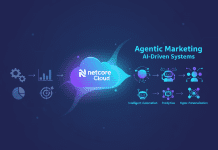Today’s consumers demand more than transactional interactions. They expect intelligent, real-time experiences tailored to their preferences. In fact, a McKinsey report states that 71% of consumers expect personalized interactions, and 76% become frustrated when these expectations aren’t met. This makes AI-driven personalization not just a competitive edge but a necessity.
Why AI and Data Are the Backbone of Personalization
Advancements in AI and large language models have made real-time personalization scalable. From dynamic ad creation to tailored product recommendations, AI helps marketers deliver resonant content. But the effectiveness of AI depends heavily on the data behind it. Poor-quality or incomplete data can lead to irrelevant messages, broken customer journeys, and lost trust.
The Role of Third-Party Data in AI-Driven Personalization
First-party data is essential, especially for customer retention, but it only tells part of the story. It’s often confined to brand-owned platforms and lacks the depth needed for full consumer insights. Third-party data fills in these gaps by helping marketers:
- Enrich audience profiles
- Extend reach across fragmented channels
- Resolve identities beyond cookies and device IDs
As data privacy laws tighten and third-party cookies phase out, marketers need compliant, high-quality third-party data more than ever.
Eyeota: Ethical and Effective Data Partner
Eyeota, a Dun & Bradstreet company, is a trusted provider of privacy-compliant, ethically sourced third-party data. Their identity-agnostic and interoperable data enables brands to adapt as digital identity norms evolve.
By integrating Eyeota’s audience data into AI systems, marketers gain deeper insights, better targeting capabilities, and more meaningful personalization.
Balancing Automation with Human Oversight
AI enables scalability, but human oversight is vital. Personalization that feels authentic requires empathy, ethical judgment, and brand alignment—qualities AI alone can’t ensure. To maintain consumer trust, marketers must:
- Use data ethically and transparently
- Monitor algorithms for bias and exclusion
- Align AI strategies with brand values
Consumers are increasingly aware of how their data is used. Brands that lead with transparency and empathy are more likely to earn long-term loyalty.
The Future of Personalization: Smarter AI, Better Data
When used responsibly, AI and high-quality data empower brands to:
- Predict customer needs in real time
- Deliver timely, relevant offers
- Improve ROI through better targeting
- Continuously optimize based on performance feedback
As expectations for personalization continue to grow, so does the need for compliant and contextual data. In the era of disappearing identifiers and evolving privacy standards, success depends on the right balance of smart technology, quality data, and human guidance.
Conclusion
AI-driven personalization is transforming how brands connect with consumers. But AI needs fuel—complete, relevant, and privacy-safe data—to function effectively. With trusted partners like Eyeota, marketers can deliver personalized experiences that are not only smarter but also more respectful and effective.
I hope you find the above content helpful. For more such informative content, please visit Martecedge.










